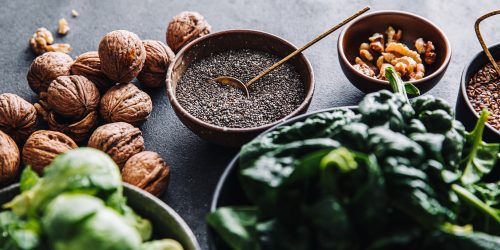
When it comes to brain health, a single natural compound may be more powerful than any drug currently available.
Brain-derived neurotrophic factor (BDNF), a natural compound made by our brains, shows promise of helping with conditions as diverse as depression, addiction, stroke, dementia and Parkinson's.
Interestingly, a growing body of research suggests that conventional medications used to treat anxiety, chronic pain and/or depression — like Prozac® (fluoxetine) and Cymbalta® (duloxetine) — may exert some of their benefits by boosting brain levels of BDNF. But the catch is this: every BDNF-enhancing drug is associated with a long list of potential side effects.
This all brings us to the really good news: research reveals that a growing list of natural strategies can boost BDNF levels — without significant side effects. Consider the follow strategies to boost your brain's BDNF content.
1. Ratchet up your daily activity. Increased aerobic exercise as well as better aerobic fitness have been linked to improved BDNF levels. Therefore, why not increase your commitment to walking, running, swimming, cycling, racket sports or other activities that involve your large muscle groups and challenge your heart and lungs?
2. Increase your intake of omega-3 fats. Sure, you could accomplish this by eating more fatty cold-water fish. But that approach can significantly increase your exposure to a range of pollutants that are concentrated in aquatic creatures. A better strategy appears to be eating more plant sources of omega-3 fats like flax seeds, chia seeds and walnuts.
3. Consider intermittent fasting. One of the hottest trends in nutrition research involves eating fewer times per day. Looking for a simple way to tap into the power of this trending approach? Follow the time-honored Spirit of Prophecy recommendation and leave off the evening meal.
4. Avoid beverage alcohol. Although this advice may seem unnecessary in a Seventh-day Adventist periodical, some church members have been lured into “moderate” drinking by unwarranted health claims and/or social pressures. The bottom line is this: alcohol is bad for brain health — and those hazards include deleterious effects on BDNF.
5. Stock up on phytochemical-rich plant foods. One category of BDNF-enhancing plant chemicals is called polyphenols. Our Creator has placed over 8,000 different polyphenols in plants, so any increase in your consumption of whole plant foods is calculated to boost your intake of these brain-healthy compounds. Examples include flavonoids in fruits, phenolic acids in vegetables and whole grains, and ellagic acid in berries.
The emerging conclusion seems straightforward: continue to prioritize natural lifestyle strategies to increase your likelihood of brain health throughout your lifespan.
David DeRose, MD, MPH, a physician holding board certifications in both internal and preventative medicine, also pastors the Fort Wayne Church in the Indiana Conference. Learn more health tips at timelesshealinginsights.org.